Home
With God’s permission and support, we are launching the official website of the Nubian Heritage Association today, marking the efforts of all who have contributed their time and resources to preserve Nubian heritage and culture as an integral part of Egypt’s cultural fabric.
These efforts have been passed down through generations, culminating in the inclusion of the association in UNESCO, where it became an active member of the NGO Forum in 2020. The association was selected to participate in various committees, thereby opening a window for global collaboration and the exchange of cultural heritage components.
With the launch of this website, we invite all those interested in intangible cultural heritage to connect with our team to exchange ideas and insights on heritage and its elements.
With God’s guidance and support.
Chairman of the Board of Directors of the Nubian Heritage Association
Dr. Mustafa Abdelkader
History of the Association:
The association was founded in 1980 and registered under number 2800/1980 with the Ministry of Social Affairs (Ministry of Solidarity). Its current headquarters is located at 15 Abdel Aziz Gawish St., Bab El-Louq, Cairo. The late Mahmoud El-Shorbagy was the first president of the association at its establishment, and the current president is Dr. Mostafa Abdel Qader.
Given that communities residing in border areas possess a unique cultural heritage influenced by the ancient civilizations that once thrived in these regions, it became essential to document this heritage as a significant cultural contribution to the nation. The Nubian community holds an ancient civilization characterized by many traits that have shaped it into a society with a rich cultural heritage, influenced by its environment filled with natural wealth. Therefore, the importance of documenting and preserving this heritage arises, as it highlights the value and identity of Egyptian heritage and its diversity. The association has adopted several heritage-related activities, such as field collection of Nubian heritage and promoting its knowledge through monthly seminars dedicated to Nubian heritage and folklore. The association’s activities expanded to include cooperation with local and international institutions, culminating in the association’s membership in 2020 in the Advisory Committee of the Convention for the Safeguarding of the Intangible Cultural Heritage at UNESCO(https://ich.unesco.org/en/accredited-ngos).
The Presidents of the Nubian Heritage Association:
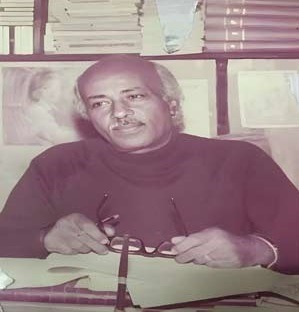
Mahmoud El-Shorbagy (1980 – 1990):
A renowned Egyptian writer and screenwriter, Mahmoud El-Shorbagy was one of the prominent Nubian creatives who left a lasting mark on literature and arts. Born in the village of Aljaninat Walshibak in Nubia, he graduated from the Faculty of Commerce and worked as an accountant in a sugar company, though he excelled in literature and screenwriting, becoming one of the most important screenwriters in Egypt and the Arab world. El-Shorbagy’s literary journey began in the 1940s, writing short stories published in newspapers such as Al-Balag and Al-Dustour, with his first short story collection published in 1948. He became well-known for his ability to transform literary works into memorable radio and TV dramas, notably the series Shamendoura, which chronicled the Nubian migration during the construction of the Aswan Dam and High Dam. He also authored other notable works such as Hikayat Shafiqa and Motwali, Ahlam Fi Al-Zohira, and Al-Ankabut. El-Shorbagy played a key role in preserving Nubian heritage through the founding of the Nubian Heritage and Culture Association in Cairo, serving as its first president. He also contributed to the establishment of the first Nubian folkloric performance troupe, collaborating with prominent figures like Hassan Baba and Mohamed Sidi Baba. His cultural legacy remains rich, marked by his influential dramas that captivated wide audiences and his efforts in documenting Nubian folk traditions and music in collaboration with notable figures such as Dr. Fikri Hassan Selim.
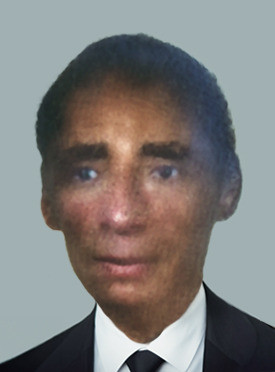
Muhayyidin Sharif (1990 – 1996):
Was an Egyptian artist, poet, and writer, one of the prominent figures in Nubian creativity. He was born in the village of Abu Simbel in Old Nubia and studied public relations and media planning in Cairo. He worked as the head of public relations at the Eastern Tobacco Company. Shereef was a versatile artist, excelling in poetry, painting, writing, and art criticism, contributing significantly to preserving and promoting Nubian heritage.
He began his career as a critic and editor for Nubian and Sudanese magazines and also contributed radio scripts and plays, most notably “Dehab and Dehiba,” which inspired the famous animated series “Bakkar.” Shereef authored several books, including “Nubia: Tales and Memories” and “Nubia: Migratory Birds.” In music, he wrote songs in both Nubian and Egyptian dialects, performed by prominent artists like Hamza El-Din and Ahmed Mini. His artwork was featured in major exhibitions, reflecting the beauty and nostalgia of Nubia.
Shereef held key positions in Nubian associations, contributing to the establishment of the Nubian Heritage Preservation Association, where he served as the second president. Mohamed Shereef left a lasting cultural and literary legacy, embodying his love for Nubia and his passion for passing on its rich heritage to future generations.
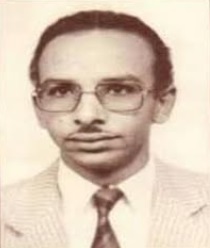
Mukhtar Khalil Kabara (1996 – 1997):
Was an Egyptian writer and researcher, renowned for his pioneering efforts in reviving the Nubian language. He was born in the village of Abu Simbel in Old Nubia, where he spent his childhood amidst the tragedy of displacement. His mother played a pivotal role in nurturing his love for the Nubian language, ensuring he and his siblings learned it. He completed his early education in Nubian schools before moving to Cairo to study archaeology at Cairo University, graduating with a Bachelor of Arts in Archaeology in 1974. He pursued postgraduate studies at the Faculty of Arts and later earned his Ph.D. in Egyptology from the University of Bonn in Germany in 1985.
His most significant achievement was reviving the ancient Nubian alphabet, which had not been used since the 16th century. He authored the book “The Nubian Language: How to Write It”, where he established the rules and characters of the Nubian language, enabling Nubians to document their language and cultural heritage. Kabara also collected numerous ancient Nubian manuscripts and related research. In 1997, he handed over his collection to the Nubian Studies and Documentation Center.
Mukhtar Kabara passed away in April 1997, just one day after delivering the manuscripts, leaving behind a priceless cultural legacy. His efforts laid the foundation for preserving the Nubian language, fulfilling his lifelong dream of giving Nubia its own documented language.
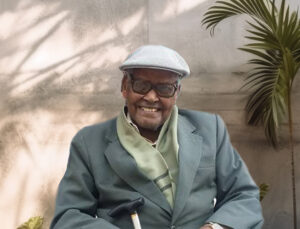
Mohamed Suleiman “Geddo Kap”(1997 – 2017):
Was born in the village of Eddendan and passed away in Cairo. He moved to Cairo at a young age, without reaching the age of eleven, following the death of his father to support his family. He attended the Ismailia Primary School in Imbaba, where he excelled academically.
Geddo Kap began his career working at the Greek Hospital in Abbasiya in 1944. This marked the first phase of transformation in his life, during which he taught himself Greek and later mastered French at the People’s University. In the second phase of his life, he transitioned to working at the Eastern Bank, where his proficiency in French played a significant role, leading him to work at the Lebanese Bank. Despite the challenges, he pursued evening studies and eventually earned his high school diploma.
Geddo Kap initially enrolled in the Faculty of Law for a year but did not feel suited to study law. He then shifted to the Faculty of Commerce, earning a Bachelor’s degree, and joined the Bank of Egypt, where he remained for many years. After retirement, he dedicated himself to cultural work and serving Nubia through the Graduate Activity Committee at the Nubian Club and the Eddendan Charity Association.
He began writing Nubian poetry and focused on preserving Nubian culture and heritage. Geddo Kap became involved with the Nubian Heritage Society in Cairo, handling administrative matters and eventually serving as the Chair of the Board of Directors in 1997.
Geddo Kap was in direct contact with the Nubian Studies and Documentation Center, contributing significantly to the publication of the book “Learning the Nubian Language.” He also played a key role in teaching Nubian in teacher-training groups at the center, as well as at the Armanah Association and the Nubian Club in Alexandria.
Geddo Kap was proficient in Arabic, French, and Greek, speaking, reading, and writing them fluently, in addition to his native Nubian language.
He authored numerous Nubian poems, contributing to the preservation and promotion of Nubian cultural heritage for future generations. He was the fourth president of the Nubian Heritage Society.
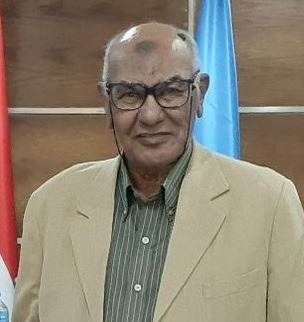
Goals of the Association
- Raising awareness of the importance of Nubian heritage, its history, and its contribution as one of the main branches of Egyptian culture.
- Strengthening national belonging by connecting local populations to their cultural roots and ensuring the continuity of their heritage.
- Raising awareness about the importance of heritage and showcasing its cultural potential, transforming its material and intangible elements into economic resources.
- Encouraging individuals, groups, local communities, and regions to take responsibility for heritage conservation.
- Promoting sustainable development by training local youth in collecting and documenting their heritage, and spreading awareness within the community to preserve it.
- Creating a cultural, literary, and historical archive of an important part of Egypt’s heritage using modern electronic publishing tools.
- Establishing a database to support scientific research and facilitate the work of researchers in the field of Nubian heritage.
- Strengthening connections, enhancing scientific experiences, and exchanging practical visits to benefit from the expertise in the field of cultural heritage and folklore.
- Organizing seminars, conferences, and cultural events, in addition to participating in specialized workshops, publishing innovative scientific research, and promoting the creation of a unified vision on heritage topics to document, preserve, and utilize them for sustainable development.
Association Activities
Documentation:
- Training groups of field researchers in the Nubian region to collect and document heritage materials.
- Forming an advisory committee comprising specialists and researchers in collaboration with the Bibliotheca Alexandrina to evaluate, review, and approve the scientific materials being collected.
The association has trained several successful researchers and heritage collectors to gather, document, and preserve the targeted heritage. For this purpose, the community has established appropriate mechanisms to train them and provide the necessary experience to handle all digital multimedia tools (photography, audio recordings, video recording), all in cooperation with the Bibliotheca Alexandrina (Center for Documentation of Cultural and Natural Heritage).
Cultural Seminars: The association holds monthly cultural seminars where Nubian community members are invited to engage with Nubian heritage through specialized lectures by experts from both within and outside the community. Other activities are also organized in collaboration with governmental and private associations to present Nubian heritage.
Outputs: The Nubian Heritage Association has contributed to publishing a number of specialized books and documentaries about Nubian heritage, providing scientific materials and expertise to several contact entities, and involving them in the documentation process.